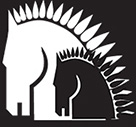Can Herbs Help with Head Tossing?
The possibility for research into this annoying problem seems to be unlimited. A range of authorities have suggested varying causes such as mineral deficiencies, misaligned back, claustrophobia, formed habit, sun, dust and disharmony between horse and rider. Whilst these explanations have validity we felt there was more to it and as herbalists we are always trying to get to the reason behind a condition and have yet another angle to consider.
Does it hurt?
Observation of quite a number of cases brought to our attention has led us to one linking sign. In many cases, but not all, we noticed the presence of small white pustules up the horses nose. Many of the owners were unaware of their presence and if they were dismissed them as insignificant as they can be quite small. They can be seen, usually on the pink tissue, using a small torch without the need for scoping. These pustules were often combined with inflammation of the mucous membrane of the nasal passages and appear to be quite painful.
Part of the horse's way of stopping foreign matter from entering its lungs is the continuous production of mucous from the membranes that line the nostrils, sinuses and windpipe. It appears that the cause of the head tossing in these cases is the pain of the slightly salty mucous running down the nasal passages and irritating the pustules. When your horse is working there is an increased flow of mucous. This explains why the condition worsens during exercise. As the flow increases so does the pain and the result is uncontrolled head throwing, as the horse tries to avoid the pain and irritation.
The sunlight link:
This theory also explains the increased incidence and severity of the problem as the weather turns warmer. Increased daylight hours and sunshine increase the dust and bugs in the air. These seem to gain easy access up the nose as horses do not have much in the way of nasal hair which are very effective filters. Nose guards are useful to stop flying debris entering the nasal passages, but in the end fixing the underlying cause is a better option.
Once a horse starts head tossing there is probably an element of association and habit in its continuation, but before we can work on this we must remove the problem. Herbalists have at their disposal a range of mucous membrane tonics to help with the inflammation and restore the membrane to their original condition.
Herbs to Use:
To resolve the problem the pustules and resultant inflammation need to be healed. The herbs we can use to support the recovery of the mucous membranes include Calendula, Plantain, Licorice and Comfrey. Calendula is a specific herb for healing internal and external ulcers and sores, and plays and important role in the healing of the pustules. Other herbs you could consider here are Comfrey or Licorice. Plantain is considered to be one of the best general mucous membrane tonics, but is not as vulnerary or healing as the others mentioned.
Antimicrobial herbs will assist in the treatment of any infection. Thyme would be the most beneficial here but raw garlic, and or Echinacea would also be beneficial. Deficiencies in Zinc can lead to poor skin integrity and herbs such as Nettle can be used to help rectify the possible mineral imbalance. Pumpkin seeds and Sage are also particularly high in zinc.
Inflammation:
As with other infections inflammation can become a problem and slow down rather speed up recovery. Along with the herbs mentioned above; Calendula, Comfrey and Licorice, raw onion is a surprisingly effective and cheap anti-inflammatory and is particularly good for the upper respiratory tract. We use a good sized onion for a good sized horse. If you have a small horse use a small onion. Ideally divide the dose in two. Half in the morning and half at night. An easy way to give it is to chop the onion in a food processor with some cider vinegar and then mix it in the horse's feed. (It may make the faeces a bit smelly and runny.)
We have been working on treatments of head tossing for some time now and have found that a herbal approach can work very well. As in all things a rigid protocol does not always work and you must be prepared to try alternatives and follow through what may turn out to be a long course of treatment.
©James Hart


